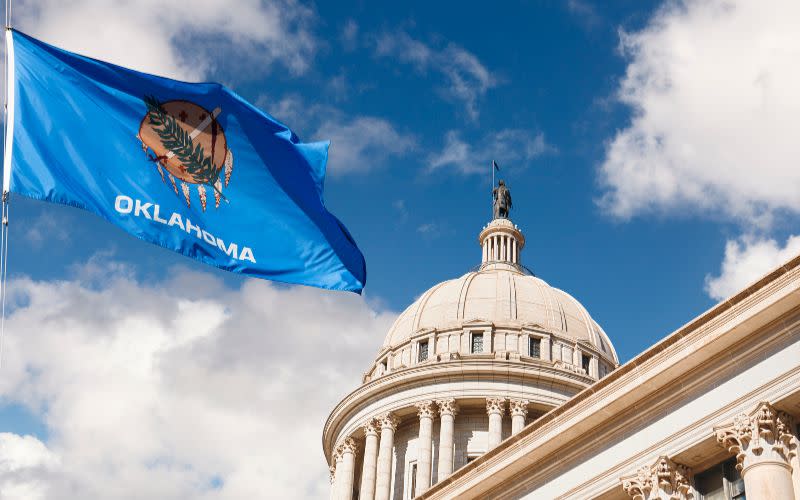Five Civilized Tribes Criticize Oklahoma Governor’s Anti-McGirt Taskforce

- Oops!Something went wrong.Please try again later.
The Inter-Tribal Council of the Five Civilized Tribes, or ITC, has issued a retort to Governor Kevin Stitt’s One Oklahoma Taskforce, a 13-member panel meant to construct a report around the landmark McGirt decision’s supposed negative effects.
The McGirt v. Oklahoma Supreme Court decision in 2020 affirmed that tribal reservations in the state — and thus, tribal jurisdictions —remained intact. Gov. Stitt, elected in 2018, has attempted to upend the decision in the time since, insisting that Oklahoma’s jurisdictions have been fractured by tribal power.
Stitt’s latest attempt to neuter the McGirt decision was through Executive Order 2023-32, establishing the aforementioned task force. Through this task force, Stitt said, the state hopes to offer “clarity” to Oklahomans and tribal citizens alike by composing a report on legislative and regulatory recommendations, uniform cross-deputization and jail agreements, and “any other recommendations relevant to the speedy resolution of the broken system created by the McGirt decision,” per an announcement on the state government website.
On Jan. 9, the ITC released a public letter asserting that the governor’s executive order was “not in the public interest.”
“After reviewing the language of the Executive Order and structure of the proposed task force, we conclude that it is designed to divide rather than unify and to make political points rather than seek genuine solutions,” the ITC letter reads. “This task force cannot adequately serve the public good unless these flaws are corrected.”
The ITC consists of the Cherokee, Chickasaw, Choctaw, Muscogee (Creek,) and Seminole Nations, whose reservations occupy much of the eastern portion of Oklahoma where McGirt is concerned. Rather than fracture jurisdiction and cause chaos as Stitt’s announcement attests, the ITC writes, McGirt restored existing jurisdictional boundaries and provided tribes with more control over their own sovereignty.
The letter calls Stitt’s subsequent attempts to defray or evade the McGirt decision a “waste of time of energy” in a bid to “delay compliance with the law.”
Instead of the taskforce, the letter calls on Stitt’s office to spend time on practical solutions for working with each of Oklahoma’s 38 federally recognized tribes. These tribes are open to collaboration, the ITC writes, but not on grounds that could undermine their sovereignty or wellbeing.
“When we have a willing partner at the State of Oklahoma, we are fully prepared to move forward. We are eager to work with our friends and neighbors to improve coordination in public safety efforts,” the letter reads. “What we cannot do is participate in an effort that spreads falsehoods about the law, attempts to minimize tribal voices, and engages in political attacks instead of constructive government-to-government dialogue.”
The letter is the latest salvo exchanged in Stitt’s contentious relationship with Oklahoma tribes. Throughout his time as governor, Stitt has battled tribes over regalia, gaming compacts, hunting and fishing compacts, tobacco compacts, and McGirt, often to the point of butting heads with a legislature controlled by his own party, per prior Native News Online reporting.
About the Author: "Chesley Oxendine (Lumbee-Cheraw) is an Oklahoma-based reporter for Native News Online and its sister publication, Tribal Business News. His journalism has been featured in the Fort Gibson Times, Muskogee Phoenix, Native Oklahoma Magazine, and elsewhere. \r\n"
Contact: ChezOxendine@idonthaveit.com

